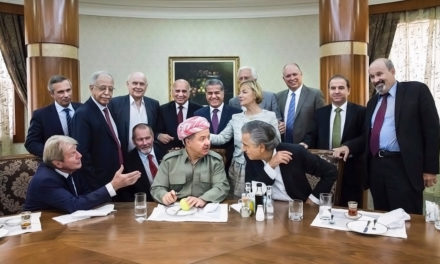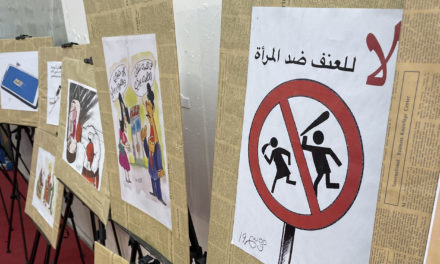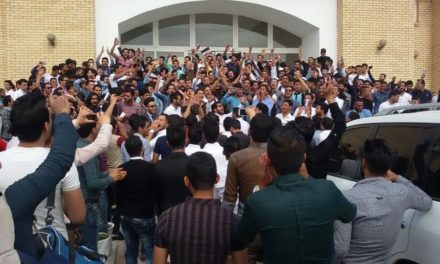October 24, 2018 marked another important day in Iraq’s modern history. Prime Minister-Designate Adil Abdul-Mahdi presented his government program and cabinet formation to parliament for their approval, and the next day the country witnessed a peaceful transition of power. However, the swearing in of Abdul-Mahdi’s government did not go as smooth as many had expected.
Abdul-Mahdi was only able to pass 14 of the 22 ministers he presented, the lowest members in a cabinet since 2003. Ministries like Defence, Interior, and Justice are still subject to negotiations. Although Abdul-Mahdi will like to finalize his cabinet by November 4th when the next parliamentary session takes place, he has enough ministers in his cabinet to reach quorum, which has allowed him to officially be the Prime Minister of Iraq.
There were no young faces as many were expecting. Instead, there were senior ministers and not a single woman amongst the 14 ministers who were sworn in the first round of proposed ministers. Also, many of the faces introduced in the new cabinet are political veterans known to the Iraqi people. Al-Gadhban, Al-Alwan, Al-Hakim, and Al-Samarrai are not strangers to Iraqi politics.
Furthermore, the government program was shortly distributed before the swearing in of the government and apparently so were the names of the ministerial candidates. This is why many MPs demanded during the session that they are given time to review the bios of the candidates and validate their credentials and background. Indeed, some of the proposed names for ministers were unacceptable based on their history.
Iraqi social media quickly pointed out the background of the proposed Defence Minister, Faisal Al-Jarba who was the head of Saddam’s air force that took part in cracking down on the Shia uprising in 1991. His proposed substitute, Hisham Al-Darraji is also alleged of being sectarian and accused of conducting a purge against Shia officers as a general in the Iraqi Ground Forces Command.
Na’em Thejil Yusur Khirbit, the nominee for Telecommunications Ministry is also supposed to have been a senior Ba’ath official before 2003. The nomination for Education Ministry, Saba Al-Ta’e was also given a suspicious review by Iraqi social media. Apparently, her husband was an officer in Saddam’s secret service and a personal bodyguard of Uday Hussein, Saddam’s oldest son. It remains to be seen how accurate these allegations are, stressing the need to have presented candidates earlier to give MPs time to review.
Nepotism is also an issue with some of the ministerial nominees. The candidate for the Ministry of Youth and Sports is a nephew of Sunni politician Jamal Al-Karbuli and a former inmate of Buka, the U.S occupation forces prison in Southern Iraq. Ahmad Al-Jobouri was accused of beheading Shia citizens in Latifiya during the period of sectarian violence in 2006 and allegedly was freed based on an agreement brokered by wanted former Vice President, Tariq Al-Hashimi.
The same issue is with the nominee for the Ministry of Justice, Asma Salim Sadiq, which is the sister of Rayan Al-Kildani, a leader of a PMU division. While she has a law degree graduating in 2005 from Al-Mustansiriya University, she worked for six years in the Oil Ministry and does not have any professional experience beyond that. This suggests that this nomination was based on political brokering rather than competence.
Understandably, the session did not go smoothly. The fact that it was not broadcasted live, alone suggests that parliament officials were not expected it would. Indeed, there were reports of Sa’iroon members walking out of the session, and allegedly there were shouting matches in the cafeteria and inside the chamber that ensued after. The Speaker had to call for a thirty-minute recess in which Adil Abdul-Mahdi met with the heads of political blocs before he and only 14 of his ministers were being sworn in later on.
The question is what to make out of all this?
It is clear that what observers witnessed on Wednesday was more of the old ways than the anticipated new approach of doing things promised and expected by the public. Political pressure, nepotism, recycling former regime officials, and the quota mentality was active in the government formation process, and Adil Abdul-Mahdi clearly had to give in to a lot of this. Understandably, this has caused a lot of disappointment.
However, this was always the likely scenario in a coalition government with no outright winner in the election. The realities of the political process, and the implications that Abdul-Mahdi is a non-elected and independent candidate with no political bloc having his back cannot be ignored. Nevertheless, there is a silver-lining in all of this.
Prime Minister Abdul-Mahdi was able to salvage the vote on his government and move the process forward, despite many hurdles in place. Although imperfect, perfection is something that cannot be expected in a country like Iraq and from a man who is about to take control of a coalition government. Because of his efforts in the last week, the country has a new government now and that is something that cannot be underestimated given Iraq’s delicate situation.
One other important and positive outcome is that he was able to pass the ministers in the areas he needs to focus early on: services. Electricity, Oil, and Health should be the top priority for Iraq’s next government, and Iraq needs the support of foreign partners to achieve progress in those areas. With new ministers in place, the new government can begin working to tackle the issue that has caused the events of Basra and other places to mass protest. Keep in mind, as independent technocrats, the heads of these ministries will essentially be facing the same pressure as the Prime Minister himself because they lack political backing from a party in parliament. It is up to the leadership of the individual ministers to achieve progress in their ministries.
As for the non-technocratic ministries, one can read into the Prime Minister’s move a way to evade the pressure of political blocs by proposing controversial candidates, and letting the parliament battle out the acceptance of their nomination. This is to win time and move the process forward in order to avoid a deadlock.
While the events of Wednesday seemed like a Déjà Vu experience, it is too early to judge the new government. To assume that it will be easy to evade the notorious quota system and all the other ‘bad habits’ is not realistic. Rather, what the new government requires is support and political stances that take into account the interest of the nation. The country needs this government to succeed for the sake of its people. There will be enough time for politicking later on.

Muhammad Al-Waeli
Muhammad Al-Waeli is an Iraqi commentator on political and social issues. He is currently doing a PhD in Human Resource Management and is interested in politics, media, and development.










